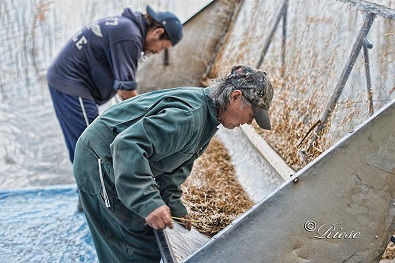An Indigenous and Metis Saskatchewan Polytechnic project has received an investment of $400,000.
Saskatchewan Polytechnic’s wild rice harvester innovation project has received the funding from PrairiesCan’s Community Economic Development and Diversification program in an effort to help bring together Sask Polytech’s engineering, design, and fabrication capacity along with the training to create and maintain a sustainable fleet of harvester boats.
Chris Thomson, a project lead and program head for Sask Polytech’s Agricultural Equipment Technician program, said the project will attempt to gather research, implement safety measures, and make servicing and maintenance easier.
“Really, what we’re trying to do is make it so these pieces that make up this boat are researched for the specific purpose of holding a lot of weight in the front, that they’ll be safer, and that they’ll be able to readily get parts for these things when they need to,” said Thomson. “Even though I’m from dry land Saskatchewan, I grew up in Alsask, there’s no wild rice for a lot of hours away from there. A lot of the interesting issues that the harvesters had we’re the same thing that a grain farmer would bring up, so that drew me right into the idea of trying to figure out how we can make this better. In the long run we’re trying to come up with an actual designed hall to do the purpose of harvesting wild rice in shallow water, trying to put a sustainable engine in it that will be rebuildable, serviceable for 25 years, replaceable if required and have it made in the sense that it’s a piece of agricultural equipment that can be utilized and not just made up of a bunch of other parts that come from a recreational background.”
As well as the technical improvements, a portion of the new funding will go towards training in wild rice harvester repair and maintenance so that community members can independently maintain their rice harvester fleets. Sask Polytech is contributing $100,000 to the development of training and maintenance micro-credentials that will be given by Dumont Technical Institute and Northlands College, each of which has contributed $100,000 to the training.
